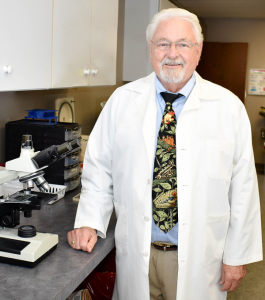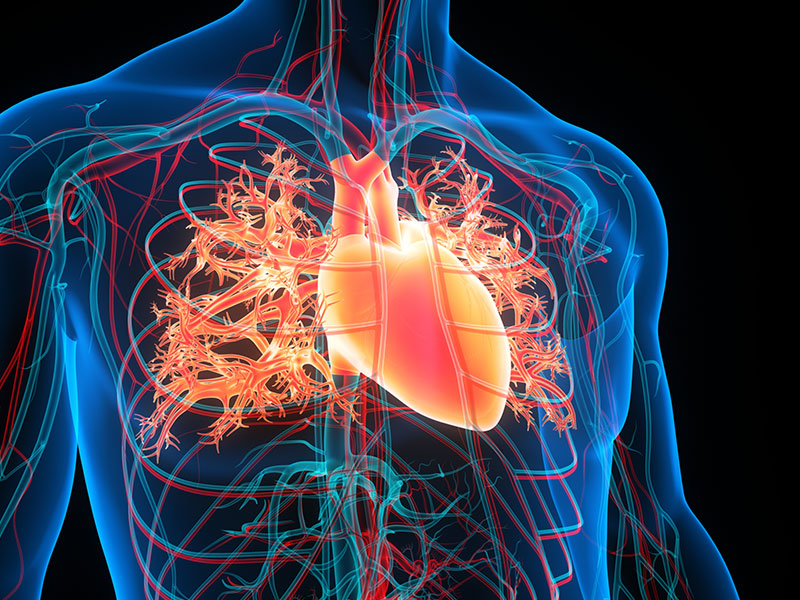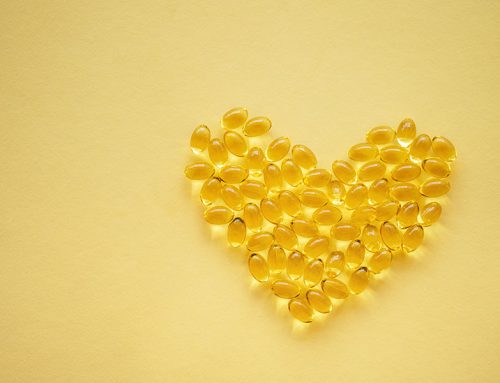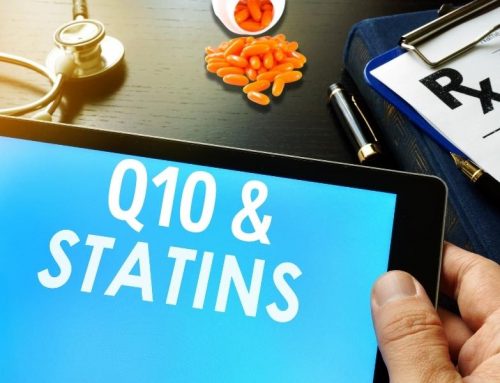
Dr. William V. Judy is the president of the SIBR Research Institute. His clinical research and the research of several other research teams shows that Coenzyme Q10 supplementation of heart failure patients significantly improves ejection fraction. Ejection fraction is the cardiologist’s measurement of how much blood the heart pumps out to the other body organs with each contraction.
Congestive heart failure. Chronic heart failure. The inability of the heart to pump adequate blood to the other body organs. In chronic heart failure, the left ventricular ejection fraction – the percentage of blood leaving the heart each time it contracts – is too low.
The medical term heart failure sounds like a death sentence. It does not mean sudden death, but the prognosis is usually not good. Heart failure is a disease that gets progressively worse.
The results of the Q-Symbio study give us good reason to think that CoQ10 adjunctive treatment, i.e. CoQ10 supplementation in addition to conventional medical treatment, can slow down the progression of the disease and improve the symptoms and the survival of heart failure patients [Mortensen].
Treatment options for heart failure patients
There are many combinations of pharmacological drugs used to treat heart failure. Some of the commonly used drugs include:
- ACE inhibitors: used to widen blood vessels and thus lower blood pressure
- Angiotensin II receptor blockers: used for the same purpose as ACE inhibitors for patients who cannot tolerate ACE inhibitors
- Beta blockers: used to slow the heart rate and to lower blood
- Diuretics: used to make the patient urinate more often to keep fluid from building up in the body
- Aldosterone antagonists: used as potassium-sparing diuretics
- Digoxin: used to strengthen the heart muscle contractions and to slow the heartbeat
Worsening symptoms of heart failure
The thing to notice is that the conventional medications for heart failure patients are medications that are designed to block rather than enhance cellular processes.
And, without Coenzyme Q10 adjunctive treatment added on to the conventional medication treatment, the prognosis for heart failure patients is usually as follows:
- Worsening symptoms
- Reduced physical functionality
- Hospitalization and re-hospitalization
- Increasing risk of death
Coenzyme Q10 to enhance cellular function
Coenzyme Q10 is a redox molecule that the body bio-synthesizes in nearly all cells. However, once we are past our 20s, our cells produce less and less Coenzyme Q10 as our age increases [Kalén]. Furthermore, statin medications are known to inhibit the body’s synthesis of Coenzyme Q10 [Okuyama].
There are many causes of heart failure, but common to the various types of heart failure is the energy starvation of the heart muscle cells [Mortensen]. Coenzyme Q10 in its oxidized form, called ubiquinone, is essential to the cellular process of energy production.
The role of CoQ10 as a bio-energetics co-factor is especially critical in the heart muscle cells. Low CoQ10 concentrations are associated with increased severity of heart failure [Mortensen].
Moreover, Coenzyme Q10 in its reduced form, called ubiquinol, is an important fat-soluble antioxidant, necessary for the neutralization of harmful free radicals [Mortensen].
In sum, sufficient concentrations of CoQ10 are needed in the heart muscle tissue to enhance the cellular processes of ATP energy production and to prevent free radical damage to cells.
Placebo-controlled studies of CoQ10 and ejection fraction
Let me review briefly some more of the randomized controlled studies of the effect of CoQ10 supplementation left ventricular ejection fraction. Improving ejection fraction is very important in the treatment of heart failure.
Normal ejection fraction lies between 55% and 70%. In the studies summarized below, most patients had ejection fractions of 40% or lower at the start of the study.
Pourmoghaddas [2014]: 100 milligrams of CoQ10 two times a day for four months improved left ventricular ejection fraction in heart failure patients taking 10 milligrams daily of the atorvastatin medication.
Hosseini [2008]: 100 milligrams of CoQ10 daily for 12 months improved left ventricular ejection fraction in congestive heart failure patients.
Belardinelli [2006]: 100 milligrams of CoQ10 three times a day for four weeks increased VO2 (the rate of oxygen consumed during exercise with increasing intensity) and left ventricular ejection fraction in heart failure patients.
Munkholm [1999]: 200 milligrams of CoQ10 per day for three months improved stroke index at rest and at work, improved pulmonary capillary wedge pressure after work, and pulmonary artery pressure at rest in heart failure patients.
Hofman-Bang [1995]: 100 milligrams of CoQ10 per day for three months increased left ventricular ejection fraction during volume load, increased maximum exercise tolerance, increased quality of life, and decreased shortness of breath and leg fatigue in patients with chronic congestive heart failure.
Morisco [1993]: Two milligrams of CoQ10 per kilogram of body weight per day for twelve months improved left ventricular ejection fraction, cardiac output, stroke volume, and end diastolic volume at rest and during exercise in congestive heart failure patients.
Rengo [1993]: 50 milligrams of CoQ10 two times per day for seven months improved left ventricular ejection fraction, left ventricular end systolic and diastolic diameter, fractional shortening, cardiothoracic index, shortness of breath, and pulmonary congestion.
Poggesi [1991]: 50 milligrams of CoQ10 two times per day for two months improved left ventricular ejection fraction.
Judy [1986]: 100 milligrams of CoQ10 for three months improved end diastolic volume index, stroke index, cardiac index, and left ventricular ejection fraction.
Vanfraechem [1986]: 33 milligrams of CoQ10 per day for three months improved VO2, stroke volume, cardiac output, cardiac index, and left ventricular ejection fraction.
Langsjoen [1985]: 33 milligrams of CoQ10 three times daily for three months improved stroke volume (= amount of blood pumped from the left ventricle with each heart beat) and left ventricular ejection fraction in patients with chronic heart failure.
CoQ10 supplementation and elderly hearts
Alehagen [2013, 2018]: 200 milligrams of CoQ10 combined with 200 micrograms of a high-selenium yeast preparation daily for four years reduced the risk of death from heart disease, helped to maintain better heart function, and improved quality of life in senior citizens (average age: 78 years).
Conclusion: CoQ10 supplementation makes a difference
Clearly, daily supplementation with CoQ10 makes a difference in the quality of life and chances of survival in heart failure patients and in otherwise healthy elderly citizens. CoQ10 supplementation is safe, affordable, and effective. It is important to buy a CoQ10 supplement with documented effects as not all CoQ10 supplements are absorbed equally well.
Read our key article on CoQ10 as adjuvant therapy for heart failure
Sources
Alehagen, U., Johansson, P., Björnstedt, M., Rosén, A., & Dahlström, U. (2013). Cardiovascular mortality and N-terminal-proBNP reduced after combined selenium and coenzyme Q10 supplementation: a 5-year prospective randomized double-blind placebo-controlled trial among elderly Swedish citizens. International Journal of Cardiology, 167(5), 1860-1866.
Alehagen, U., Aaseth, J., Alexander, J., & Johansson, P. (2018). Still reduced cardiovascular mortality 12 years after supplementation with selenium and coenzyme Q10 for four years: A validation of previous 10-year follow-up results of a prospective randomized double-blind placebo-controlled trial in elderly. Plos One, 13(4), e0193120. doi:10.1371/journal.pone.0193120
Belardinelli, R., Muçaj, A., Lacalaprice, F., Solenghi, M., Seddaiu, G., Principi, F., & Littarru, G. P. (2006). Coenzyme Q10 and exercise training in chronic heart failure. European Heart Journal, 27(22), 2675-2681.
Hofman-Bang, C., Rehnqvist, N., Swedberg, K., Wiklund, I., & Aström, H. (1995). Coenzyme Q10 as an adjunctive in the treatment of chronic congestive heart failure. Journal of Cardiac Failure, 1(2), 101–107. Retrieved from http://db14.linccweb.org/login?url=http://search.ebscohost.com/login.aspx?direct=true&db=mnh&AN=9420639&site=ehost-live
Hosseini, V. N. (2008). Comparison of Coenzyme Q10 versus placebo in chronic heart failure. Research Journal of Biological Sciences, 3: 546-549.
Judy W.V., Hall J.H., Toth P.D. & Folkers K. (1986) Double-blind-double crossover study of Coenzyme Q10 in heart failure. In: Folkers K., Yamamura Y. (eds) Biomedical and Clinical Aspects of Coenzyme Q10, 5, 315-324.
Kalen A, Appelkvist EL, Dallner G. Age-related changes in the lipid compositions of rat and human tissues. Lipids. 1989;24(7):579–584.
Langsjoen, P.H., Vadhanavikit, S. & Folkers, K. (1985). Effective treatment with coenzyme Q10 of patients with chronic myocardial disease.
Drugs Exp Clin Res., 11(8):577-9.
Morisco, C., Trimarco, B., & Condorelli, M. (1993). Effect of coenzyme Q10 therapy in patients with congestive heart failure: a long-term multicenter randomized study. The Clinical Investigator, 71(8 Suppl), S134-S136.
Mortensen, S. A., Rosenfeldt, F., Kumar, A., Dolliner, P., Filipiak, K. J., Pella, D., & Littarru, G. P. (2014). The effect of coenzyme Q10 on morbidity and mortality in chronic heart failure: results from Q-SYMBIO: a randomized double-blind trial. JACC. Heart Failure, 2(6), 641-649.
Munkholm, H., Hansen, H. H., & Rasmussen, K. (1999). Coenzyme Q10 treatment in serious heart failure. Biofactors (Oxford, England), 9(2-4), 285-289.
Okuyama, H., Langsjoen, P. H., Hamazaki, T., Ogushi, Y., Hama, R., Kobayashi, T., & Uchino, H. (2015). Statins stimulate atherosclerosis and heart failure: pharmacological mechanisms. Expert Review of Clinical Pharmacology, 8(2), 189-199. doi:10.1586/17512433.2015.1011125
Pogessi L, Galanti G, Comeglio M, Toncelli L, Vinci M. (1991). Effect of Coenzyme Q10 on left ventricular function in patients with dilative cardiomyopathy. Curr Therapeutic Res, 49:878–86.
Pourmoghaddas, M., Rabbani, M., Shahabi, J., Garakyaraghi, M., Khanjani, R., & Hedayat, P. (2014). Combination of atorvastatin/coenzyme Q10 as adjunctive treatment in congestive heart failure: A double-blind randomized placebo-controlled clinical trial. ARYA Atherosclerosis, 10(1), 1-5.
Rengo, F., Abete, P., Landino, P., Leosco, D., Covelluzzi, F., Vitale, D. & Ferrara, N. (1993). Role of metabolic therapy in cardiovascular disease. The Clinical Investigator, 71(8 Suppl), S124–S128. Retrieved from http://db14.linccweb.org/login?url=http://search.ebscohost.com/login.aspx?direct=true&db=mnh&AN=8241695&site=ehost-live
Vanfraechem, J. H. P., Picalausa, C. & Folkers, K. (1986). Effects of Coenzyme Q10 on physical performance and recovery in myocardial failure. Biomedical and Clinical Aspects of Coenzyme Q, 5, 371-378.
The information presented in this review article is not intended as medical advice and should not be construed as such.








[…] Numerous RCTs have shown that supplementation with CoQ10 is associated with significant improvements in ejection fraction. […]
in 2019 after heart attack my EF was 24%…told the best outcome from drug therapy would be 35%
I took 1200mgs Coq10 plus 1000mgs resveratrol ……….my EF went to 58.then 65%……….I have the Lab results to prove it !
too much vested interest from drug Cos that cannot patent Coq10…..trial are of TOO LOW dose.
Thank you for sharing this information, Peter.
As you say, you have the lab report documentation. On 15 Nov 2018, I reviewed some of the placebo-controlled studies that have shown that CoQ10 supplementation improves ejection fraction compared to placebo.
https://www.q10facts.com/coenzyme-q10-supplements-and-ejection-fraction/
In 2006, Hathcock and Shao reported that the evidence for an observed safe level for Coenzyme Q10 at intakes up to 1200 mg/day is strong.
Hathcock JN, Shao A. Risk assessment for coenzyme Q10 (Ubiquinone). Regul Toxicol Pharmacol. 2006 Aug;45(3):282-8.
I am happy that you are feeling so much better.
Richard